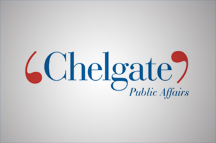No Member State enjoys as much influence over the European Union and its politics as Germany, and no other party characterises the German political direction much as the CDU. Earlier this month, all eyes were on the CDU as the party, which is in government since 2005, elected a new chairman: Armin Laschet, Prime Minister of North-Rhine Westphalia. Laschet prevailed over his opponents Friedrich Merz, ex-Chairman of the investment management firm BlackRock, and Norbert Roettgen, foreign policy expert. Sitting at the helm of the party, Laschet will not only streamline German party politics but also Germany’s position on EU-matters. But who is Laschet? And what does his election as CDU chairman mean for the EU and its climate policy?
Laschet and the EU: Merkel 2.0?
Laschet follows a centrist politikstil, similar to the “Merkel method”. Other than Merz, the conservative hardliner who sought to align the CDU more towards the centre-right, Laschet stands for a policy of continuity and will likely adopt Merkel’s consensual course. This observation will also hold for his EU policy. Born into a family originating from Belgian Wallonia and grown up close to the Dutch and Belgian border, it is no surprise that Laschet is an EU-enthusiast. He even served as a Member of European Parliament for the European People’s Party.
Laschet made international headlines when he criticised Merkel’s EU policy as lacking ambition: “Today the French president is making proposals, but we are taking too long to respond”, he said. Indeed, Laschet seeks to strengthen Germany’s role in the EU even further, especially in budgetary terms, and seeks to increase Germany’s contributions to the EU budget. Under his leadership, we can also expect an intensification of the Franco-German cooperation on EU matters.
Laschet for a greener Europe?
Laschet’s father was a coal worker in Germany’s biggest coal mining state North Rhine-Westphalia, and the CDU leader has often stressed how his father’s job has shaped Laschet’s values of solidarity, trust, and cooperation. His pride in the German coal industry has also left a mark on Laschet’s climate policy. For the coal industry supporter, workplace security and economic growth take precedence over ambitious climate action. Asked if the CDU must become “greener”, Laschet said no, and so we cannot expect much enthusiasm for a climate action revolution from the new CDU leader, neither at the national nor at the European level.
by Careen Becker, Consultant












